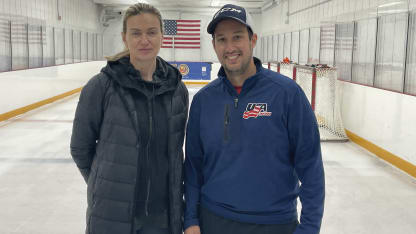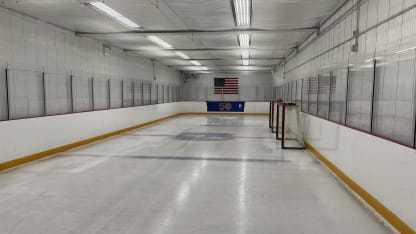NEW YORK -- Minutes from a picturesque view of the Manhattan skyline in the western tip of Queens is a narrow, rectangular skating rink, where boys and girls of Asian-American heritage are welcomed to Learn to Play.
Not long ago, even with a heavy demand for after-school activities, a myth hovered over Long Island City Ice like ominous cumulus clouds. Owners Matt and Lucia Grosek were told hockey is too expensive and not accessible. They feared after immigrating from Slovakia in 2016 that their business would not survive.
"We really had no idea what we were doing," Matt said. "I had no concept of who we're going to attract, who we're going to bring in, if anybody."
A breakthrough occurred when Matt was introduced to the NHL Learn to Play program created by the League and NHL Players' Association that inspires youth and offers a free first session with all gear included. Long Island City Ice formed an affiliation with the New York Islanders. It was a life raft.
"Without Learn to Play, we wouldn't be able to function," Matt said.
About 3,000 miles across the United States, the San Jose Sharks have been one of the more progressive organizations commemorating Asian and Pacific Islander Heritage Month (API) honoring communities and their contributions to hockey. The Sharks held their annual Celebration of South Asian Culture at SAP Center on March 11 before a 5-2 loss to the Minnesota Wild. Their practice facility is Sharks Ice on South Tenth Street, promoted as the largest rink west of the Mississippi River with coaches of Asian descent helping with camps and clinics as part of the allure for API youth.
"It's been almost self-sufficient," Sharks Ice youth hockey coordinator Nick Romeo said. "It's a community that's been growing on its own. I guess we're lucky here in that we're in a very diverse area, so while we have the same general diversity issues that a lot of other clubs have, we also have a diverse community."



















